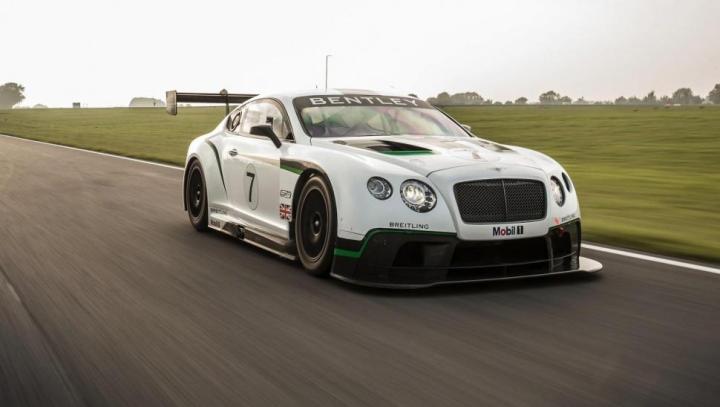
You won’t find many who claim that the Bentley Continental GT V8 S is slow; it is powered by a 4.0-liter, 521-horsepower twin-turbo V8 after all. More common are those who say the GT V8 could lose some weight, and they aren’t wrong: the 2014 model tips the scales at a hefty 5,060 pounds.
So when the news broke that Bentley was a planning a lightweight Continental GT based on the GT3 racecar, it was hard not to salivate. A high-powered Continental that doesn’t weigh as much as the moon? Sign us up.
Despite its rotund curb weight, the standard GT V8 S is still plenty spry: it will sprint from 0 to 60 mph in just 4.3 seconds. If the new GT3 roadcar takes any cues from its racecar brother, it should be seriously fast. According to an Autocar report, the roadcar will have an output of near 700 hp, and be much lighter.

How much lighter? We’re not quite sure yet, but if the GT3 racecar is any indication, it should be significant. According to Bentley, “there’s no room for luxury on the racetrack,” so its racing GT is over 2,200 lbs lighter than the standard GT V8 S. That’s basically a whole Miata’s worth of weight. For reference, the road-going Continental GT V8 weighs 5,060 pounds.
To cut down on the pounds, Bentley is replacing the Continental’s heavy four-wheel-drive architecture with a lighter, more responsive rear-wheel-drive system on the GT3 roadcar. Furthermore, it will be composed entirely of carbon fiber, both bodywork and trim. As a finishing touch, Bentley’s race engineers will have the final say before the car is signed off, making sure the racecar’s DNA is still prominent after creature comforts are added.
The Continental GT3 will be produced in a limited run, so unfortunately you won’t be seeing too many of these in your town. Your best chance at a glance is when its released at the Goodwood Festival of Speed later this month.


